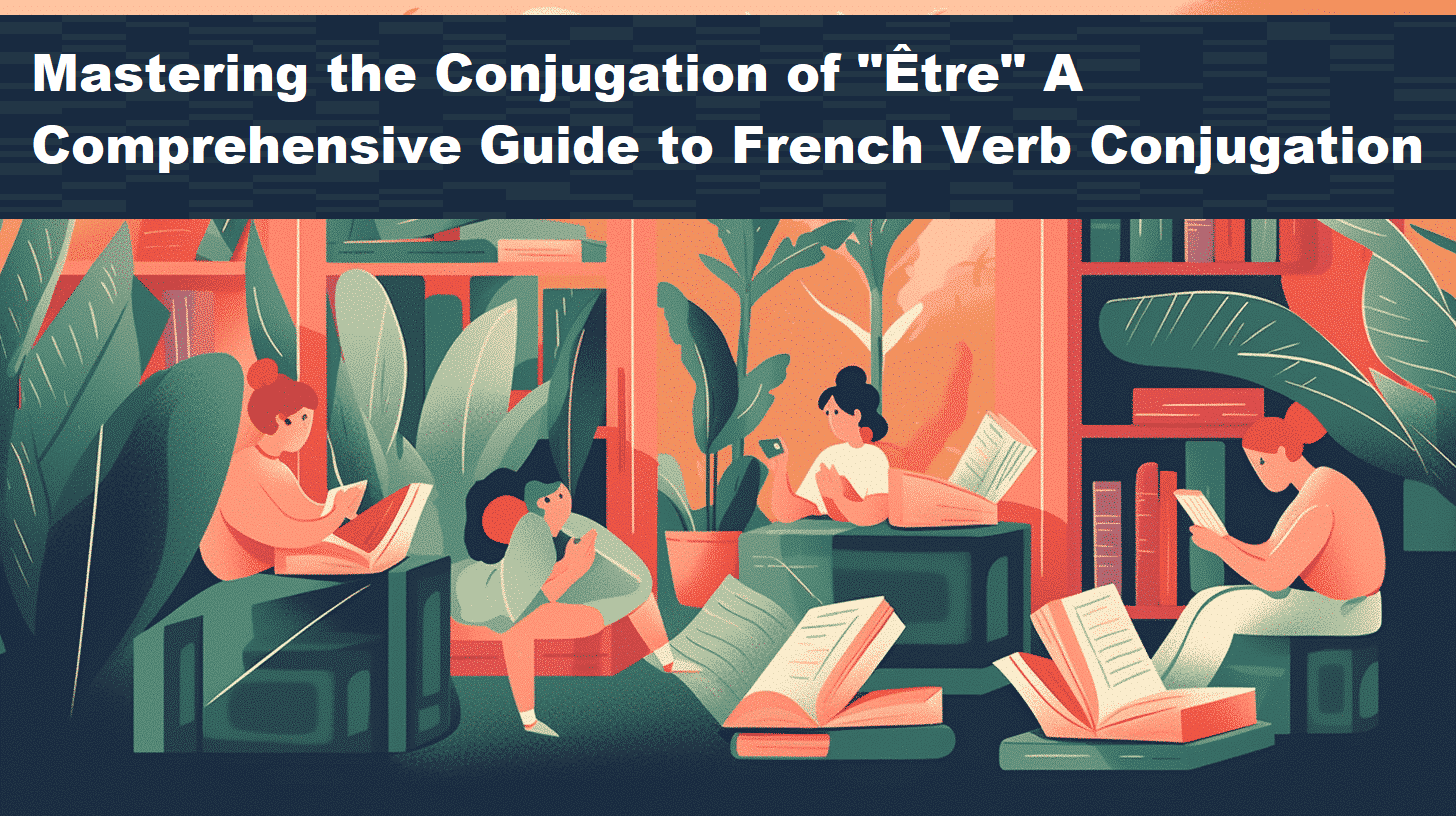
Mastering the Conjugation of “Être” A Comprehensive Guide to French Verb Conjugation
In the French language, the verb “être” (to be) is one of the most essential and frequently used verbs. Its conjugation is foundational to understanding French grammar and communication. Mastery of “être” opens doors to expressing identity, existence, and states of being. This guide aims to provide a thorough exploration of the various conjugations of “être” across different tenses and moods.
Present Tense (Le Présent)
The present tense is used to describe actions that are currently happening or general truths. The conjugation of “être” in the present tense is as follows:
- Je suis (I am)
- Tu es (You are – singular, informal)
- Il/Elle/On est (He/She/One is)
- Nous sommes (We are)
- Vous êtes (You are – plural or formal)
- Ils/Elles sont (They are)
Examples:
- Je suis étudiant. (I am a student.)
- Nous sommes prêts. (We are ready.)
Imperfect Tense (L’Imparfait)
The imperfect tense is used for past actions that were ongoing or habitual. The conjugation of “être” in the imperfect tense is:
- J’étais (I was)
- Tu étais (You were – singular, informal)
- Il/Elle/On était (He/She/One was)
- Nous étions (We were)
- Vous étiez (You were – plural or formal)
- Ils/Elles étaient (They were)
Examples:
- Quand j’étais jeune, je jouais dehors. (When I was young, I played outside.)
- Ils étaient toujours en retard. (They were always late.)
Future Tense (Le Futur)
The future tense expresses actions that will happen. The conjugation of “être” in the future tense is:
- Je serai (I will be)
- Tu seras (You will be – singular, informal)
- Il/Elle/On sera (He/She/One will be)
- Nous serons (We will be)
- Vous serez (You will be – plural or formal)
- Ils/Elles seront (They will be)
Examples:
- Je serai en vacances la semaine prochaine. (I will be on vacation next week.)
- Vous serez surpris par les résultats. (You will be surprised by the results.)
Conditional Tense (Le Conditionnel)
The conditional tense is used to express hypothetical situations or polite requests. The conjugation of “être” in the conditional tense is:
- Je serais (I would be)
- Tu serais (You would be – singular, informal)
- Il/Elle/On serait (He/She/One would be)
- Nous serions (We would be)
- Vous seriez (You would be – plural or formal)
- Ils/Elles seraient (They would be)
Examples:
- Je serais ravi de vous aider. (I would be delighted to help you.)
- Ils seraient contents de vous voir. (They would be happy to see you.)
Subjunctive Mood (Le Subjonctif)
The subjunctive mood is used to express doubt, emotion, or uncertainty. The conjugation of “être” in the subjunctive mood is:
- Que je sois (That I be)
- Que tu sois (That you be – singular, informal)
- Qu’il/elle/on soit (That he/she/one be)
- Que nous soyons (That we be)
- Que vous soyez (That you be – plural or formal)
- Qu’ils/elles soient (That they be)
Examples:
- Il faut que je sois prêt à temps. (It is necessary that I be ready on time.)
- Je doute qu’ils soient arrivés. (I doubt that they have arrived.)
Past Tenses
Perfect Tense (Le Passé Composé)
The perfect tense is used for actions that have been completed in the past. It is formed with the auxiliary verb “avoir” (to have) and the past participle “été.” The conjugation is:
- J’ai été (I have been)
- Tu as été (You have been – singular, informal)
- Il/Elle/On a été (He/She/One has been)
- Nous avons été (We have been)
- Vous avez été (You have been – plural or formal)
- Ils/Elles ont été (They have been)
Examples:
- Nous avons été en France l’année dernière. (We have been to France last year.)
- Elle a été très gentille. (She has been very kind.)
Pluperfect Tense (Le Plus-Que-Parfait)
The pluperfect tense indicates an action that had been completed before another past action. It is formed with the imperfect tense of “avoir” and the past participle “été”:
- J’avais été (I had been)
- Tu avais été (You had been – singular, informal)
- Il/Elle/On avait été (He/She/One had been)
- Nous avions été (We had been)
- Vous aviez été (You had been – plural or formal)
- Ils/Elles avaient été (They had been)
Examples:
- J’avais été malade avant le voyage. (I had been sick before the trip.)
- Ils avaient été surpris par la nouvelle. (They had been surprised by the news.)
Conclusion
Understanding the conjugation of “être” is crucial for anyone learning French. Its versatility across different tenses and moods makes it a cornerstone of French grammar. By practicing these conjugations and applying them in various contexts, learners can significantly enhance their ability to express a wide range of ideas and emotions in French. Mastery of “être” not only facilitates clear communication but also provides deeper insights into the intricacies of French syntax and usage.